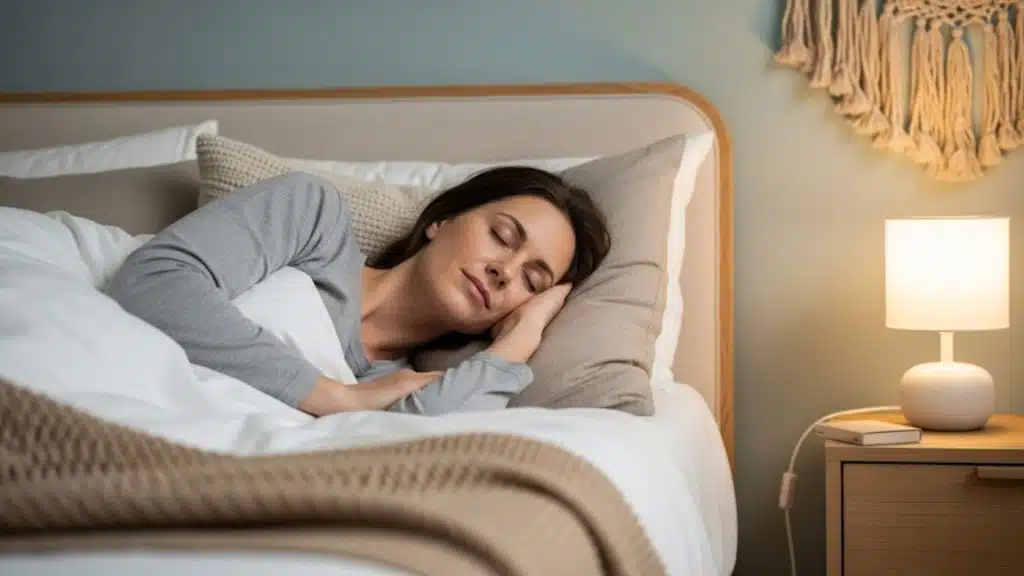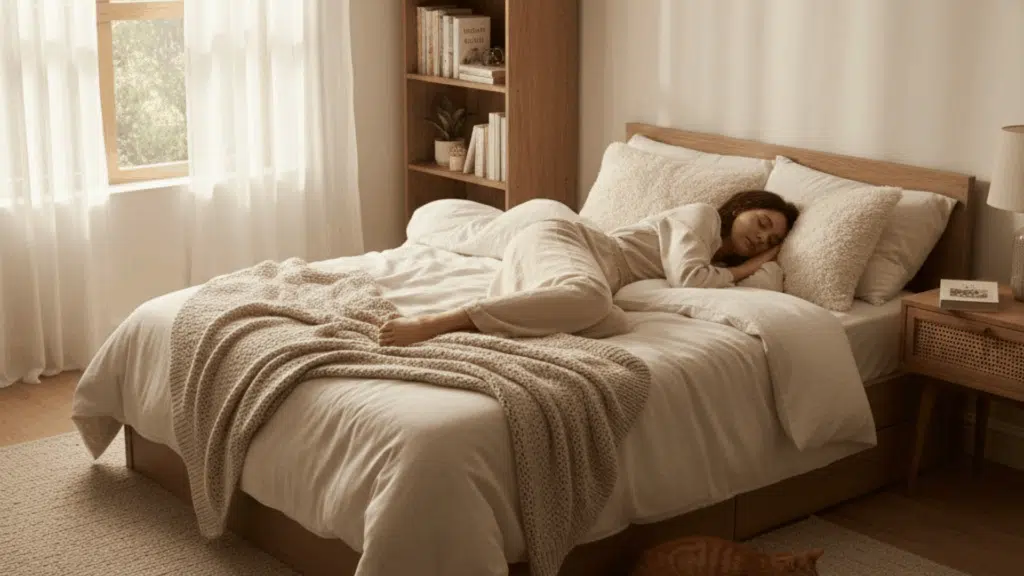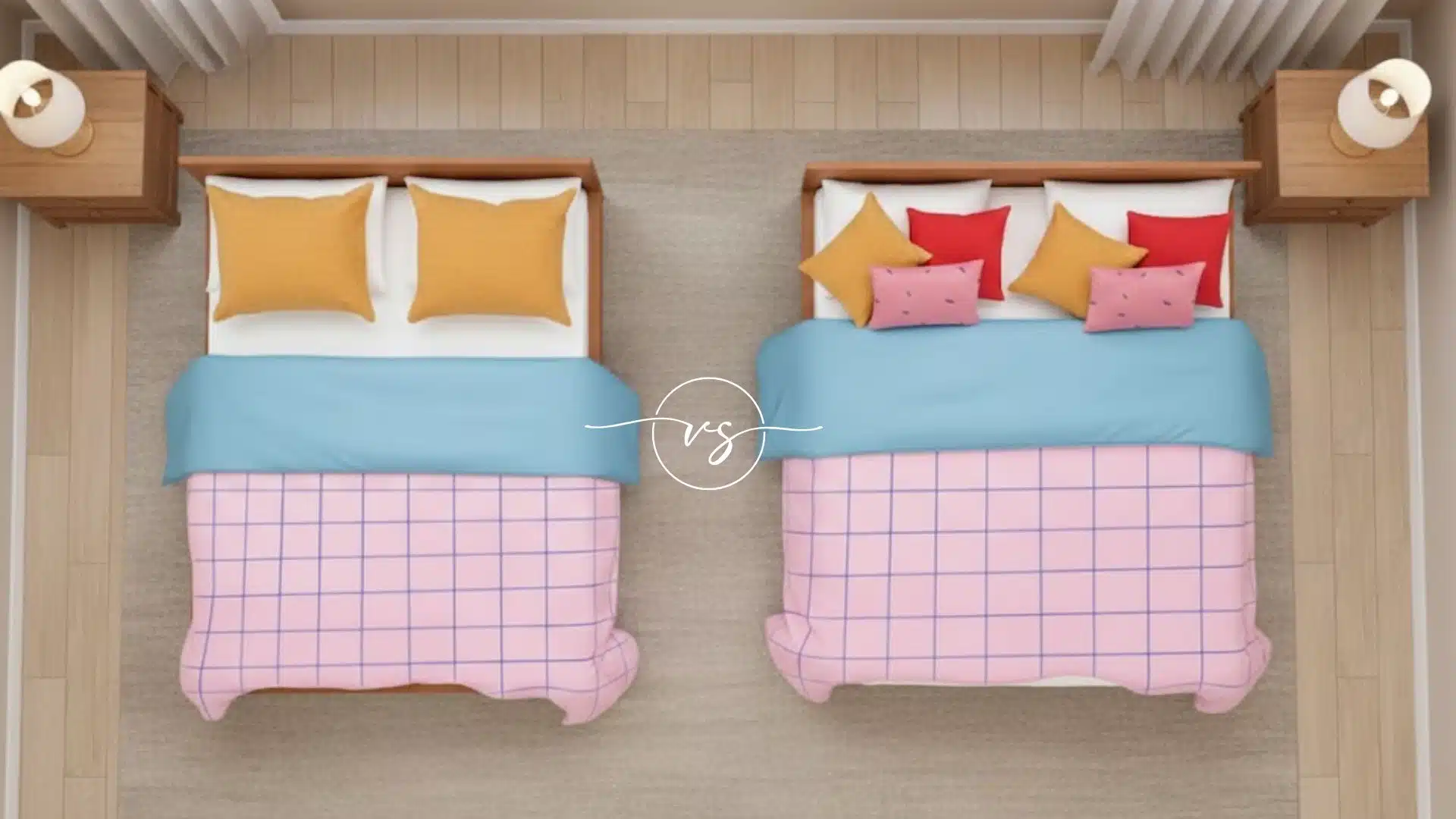Ever thought about how much sleep women need compared to everyone else around you? You might be surprised to learn that your sleep requirements are quite unique and different from what most people assume.
Sleep isn’t just about closing your eyes and hoping for the best – it’s a complex biological process that affects every part of your daily life.
Your gender, age, and life circumstances all play essential roles in determining your ideal sleep duration and quality.
Many women struggle to get enough rest while juggling work, family, and personal responsibilities that seem unlimited. Ready to unlock the secrets of better sleep and wake up feeling amazing every single day?
DISCLAIMER: This information is for educational purposes only and should not replace professional medical advice from healthcare providers.
Why Sleep Matters for Women’s Health?
Sleep affects women differently than men because of hormones and body changes throughout life. Your monthly cycle, pregnancy, and menopause all impact how well you sleep each night.
When you don’t get enough rest, your body struggles to balance important hormones. This can make your periods more painful and irregular than they should be. Poor sleep also weakens your immune system, making you catch colds more often.
Women who sleep less than seven hours nightly have higher risks of heart disease. Your skin ages faster without proper rest, and you might gain weight more easily. Good sleep helps your body repair itself and keeps your energy levels steady.
Factors Influencing Sleep Needs in Women

Women’s sleep needs change throughout their lives due to hormonal fluctuations, aging, and daily responsibilities. Understanding these factors and how much sleep a woman needs helps you recognize why your sleep patterns might shift over time.
Hormonal Changes and Sleep
Your hormones work like invisible puppet masters, controlling how well you sleep each night. During the first half of your menstrual cycle, estrogen levels rise and often improve sleep quality.
But in the second half, progesterone drops can make you toss and turn more. Right before your period starts, falling hormone levels often cause lighter, more disrupted sleep patterns.
Pregnancy brings its own set of sleep challenges as your body produces more progesterone, making you feel sleepier. However, growing babies and frequent bathroom trips can significantly disrupt your rest.
Hot flashes during menopause can wake you up multiple times each night. These hormonal changes explain why your sleep feels different during various life stages.
Lifestyle Factors
Your daily habits and responsibilities play a huge role in determining your sleep quality. These lifestyle elements can either support or sabotage your nightly rest.
- Stress levels: High stress from work or family problems makes it harder to fall asleep and stay asleep peacefully
- Work schedules: Shift work or long hours disrupt your natural sleep-wake cycle and confuse your internal clock
- Family responsibilities: Caring for children or elderly parents often interrupts sleep and creates chronic sleep deprivation
- Exercise habits: Regular physical activity improves sleep quality, but exercising too close to bedtime can keep you awake
Making small changes to these lifestyle factors can dramatically improve how well you sleep each night. Your body responds quickly to positive changes in daily routines and stress management techniques.
How Much Sleep Do Women Need: A Guide by Age
Different life stages bring unique sleep requirements and challenges that affect women in distinct ways.
Knowing how many hours of sleep women need at each phase helps women maintain optimal health as they age through various life phases.
| Life Stage | Recommended Sleep | Common Sleep Challenges | Key Changes |
|---|---|---|---|
| Adolescence (13-18) | 8-10 hours | Late bedtimes, early school start | Growth hormones, delayed sleep phase |
| Early Adulthood (18-25) | 7-9 hours | Social activities, academic stress | Establishing adult sleep patterns |
| Middle Age (26-64) | 7-9 hours | Hot flashes, work stress, and family duties | Hormonal fluctuations, life responsibilities |
| Older Women (65+) | 7-8 hours | Earlier bedtimes, frequent waking | Circadian rhythm shifts, health conditions |
As women move through different life stages, their sleep needs and challenges they face also change. Understanding these changes helps support better rest and overall well-being.
Sleep Deprivation and Its Impact on Women

Sleep deprivation hits women harder than most people realize, affecting both body and mind in serious ways.
When you don’t get enough quality sleep regularly, your risk for heart disease and diabetes goes up significantly. Your immune system gets weaker, making you catch colds and infections more often than usual.
Mentally, a lack of sleep makes anxiety and depression symptoms much worse for many women. You might notice more mood swings, feeling cranky or emotional over small things that usually wouldn’t bother you.
Your brain struggles to focus, remember things, and make good decisions when you’re sleep-deprived consistently.
Women are twice as likely as men to suffer from insomnia and other sleep disorders. Hormonal changes, pregnancy, menopause, and caregiving responsibilities all contribute to this higher risk.
What Science Says About How Much Sleep Women Need
Scientific studies have revealed intriguing differences in how men and women sleep and rest. These research findings help us understand why women often have unique sleep challenges and needs.
Gender Differences in Sleep Needs
Research shows women typically need about 10 to 20 minutes more sleep than men each night. Women often feel more tired during the day and report having worse sleep quality overall.
This happens partly because women handle more caregiving duties and household tasks that interrupt their rest. Biology also plays a role – women have different hormone levels and brain patterns that can affect their sleep.
The study “Gender and Time for Sleep among U.S. Adults” found that women sleep longer but wake up more often during the night. These interruptions often stem from family responsibilities and work demands that women frequently juggle daily.
Studies on Sleep Duration in Women
Sleep research reveals that women’s sleep needs change dramatically throughout different life stages and situations. Hormonal shifts during teenage years, pregnancy, and menopause all impact how much and how well women sleep.
The study “Do Women Need More Sleep Than Men? A Study on Gender Differences among College Students” revealed an interesting finding about female college students. These women slept about 45 minutes longer than their male classmates each night on average.
However, they still felt more sleepy and tired during daytime hours than the men did. Sleep tracking studies using monitors confirm that women tend to sleep longer overall but experience more nighttime interruptions.
Tips for Improving Sleep Quality in Women
Achieving better sleep doesn’t have to be complicated or expensive. These simple strategies can help you create the perfect conditions for restful, rejuvenating sleep.
- Optimize your bedroom environment: Keep your room calm, dark, and quiet with blackout curtains and comfortable bedding.
- Stick to a consistent sleep schedule: Go to bed and wake up at the same time every day, even on weekends.
- Limit screen time before bed: Turn off phones, tablets, and TVs at least one hour before your bedtime.
- Try relaxation techniques: Practice deep breathing, meditation, or gentle yoga stretches to calm your mind nightly.
Most women notice an improvement in sleep within just a few weeks of consistently following these basic guidelines. If sleep problems persist despite these changes, don’t hesitate to discuss other solutions with your doctor.
Common Misconceptions About Women’s Sleep Needs
Many people believe false ideas about how women sleep and what they need for rest. Let’s clear up these common myths with facts from scientific research.
| Myth | Truth |
|---|---|
| Women need much more sleep than men | Women sleep only 10-20 minutes longer on average, not drastically more time. |
| Women can function well on less sleep | Women need 7-9 hours, like men; insufficient sleep harms health equally |
| Sleep problems are just due to stress | Hormonal changes and sleep disorders play major roles beyond stress |
| All women have the same sleep needs | Sleep needs vary by age, lifestyle, reproductive stage, and health conditions. |
| Women’s sleep is less restorative | Women get more deep sleep but report poor quality due to interruptions |
| Napping replaces lost nighttime sleep | Napping helps, but cannot replace essential, uninterrupted night sleep benefits. |
Understanding these facts helps women make better decisions about their sleep health and habits. Don’t let these myths prevent you from getting the quality rest your body truly needs.
Wrapping Up
Now you understand how much sleep women need and why it changes through different stages of life.
Sleep affects everything from your mood and memory to your overall health and energy. Take a moment to think about your own habits. Are you getting the rest your body truly needs?
Even small changes like going to bed earlier or turning off screens before sleep can make a big difference over time. Remember, good sleep isn’t a luxury; it’s part of taking care of yourself every day.
Want more tips on sleep, wellness, and feeling your best? Read other blogs on the website for guides that fit your real life. Your path to better sleep starts now.









